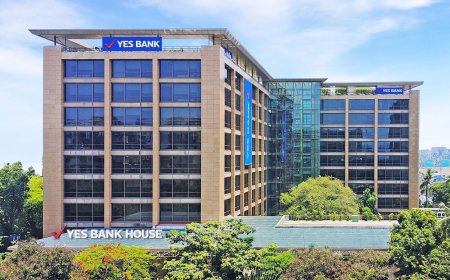Wockhardt to exit US generic pharma segment to unlock capital for high-impact areas
Wockhardt is exiting the US generic pharmaceutical segment to reallocate capital toward high-impact areas like biologics, specialty drugs, and global expansion. Analysts see long-term value in the strategic shift.

Mumbai, July 12, 2025 – In a decisive move to realign its strategic focus and optimize capital deployment, Indian pharmaceutical major Wockhardt Ltd announced its decision to exit the US generic pharmaceutical business. The company stated that this exit will enable it to reallocate resources toward “high-impact” areas such as specialty drugs, biotechnology, and innovative partnerships across international markets.
Strategic Pivot from Commoditized Markets
Wockhardt’s exit from the generic drugs business in the US marks a major departure from its earlier focus on the world’s largest pharmaceutical market. The company cited eroding margins, high competition, and stringent regulatory hurdles as factors that have limited the attractiveness of the US generics space.
“We believe this move will allow us to unlock capital and focus on areas with better growth potential and sustainable profitability,” said Dr. Habil Khorakiwala, Founder-Chairman of Wockhardt. “Our strategic direction is firmly aligned toward novel drug development, biologics, and expanding our presence in emerging global markets.”
The company plans to sell or phase out its generic product portfolio and related infrastructure in the US, including select manufacturing and marketing operations. Specific financial terms or a timeline for the exit have not yet been disclosed.
Market Dynamics: Why Now?
The global generics market, especially in the US, has witnessed steep price erosion over the past few years. Companies have struggled with compressed margins due to intense pricing pressures and increasing regulatory scrutiny from the US Food and Drug Administration (USFDA).
According to industry analysts, Wockhardt’s US generics revenues have contributed less than 10% to its total revenues in recent years, signaling limited strategic importance.
“The US generics market is becoming increasingly unviable for mid-tier players like Wockhardt. Consolidation among buyers, price wars, and compliance risks make it capital-intensive without proportional returns,” said Ravi Deshpande, pharma analyst at ICICI Securities. “Redirecting focus to specialty pharma and biologics could provide more stability and growth.”
Focus Areas Going Forward
Post-exit, Wockhardt plans to concentrate on the following growth areas:
-
Biologics and biosimilars: The company already has a pipeline of biologics under development and is actively investing in R&D.
-
Specialty pharmaceuticals: This includes niche therapies and difficult-to-manufacture drugs with higher margins and IP protection.
-
Global expansion: Wockhardt is strengthening its presence in the UK, India, and emerging markets in Africa and the Middle East.
-
Partnerships and contract development: Collaborations with multinational pharma firms for research, development, and manufacturing are also in focus.
The company has recently enhanced its biologics manufacturing facilities in India and the UK and is expected to deploy the released capital toward expanding those capabilities further.
Financial Implications
Wockhardt's US generics segment has been a drag on profitability, with multiple warning letters and import alerts from the USFDA over the past decade. These challenges, coupled with declining volumes and pricing, have pushed the company to reassess the business’s long-term viability.
Exiting the segment is expected to reduce compliance costs and improve the company’s overall financial health. While the short-term impact on revenues may be modest, long-term margins are expected to improve as capital is reallocated.
As of FY24, Wockhardt reported a revenue of ₹3,083 crore, with the US business contributing approximately ₹300 crore. The company posted a net loss of ₹120 crore in FY24, impacted by R&D investments and regulatory costs.
Investor and Analyst Outlook
Market participants have largely welcomed the announcement, viewing it as a course correction that could set the stage for long-term value creation. Wockhardt’s shares rose 3.8% on the BSE following the announcement, reflecting investor optimism.
“This decision reflects a pragmatic approach to capital efficiency. We expect better returns on investment as Wockhardt shifts focus to biosimilars and contract development,” said Meera Vyas, senior analyst at Motilal Oswal Financial Services.
However, some analysts have cautioned that execution risks remain high, especially as the company transitions out of a key geography and scales new verticals simultaneously.
“While the exit removes a low-margin business, the success of the strategy depends on how well Wockhardt can ramp up its specialty and biologics segments, both of which require high upfront investment and long development cycles,” said Girish Tandon, analyst at JM Financial.
Wockhardt’s strategic retreat from the US generics market underscores a broader industry trend where pharmaceutical companies are moving away from commoditized, low-margin products in favor of innovation and specialization. With significant investments lined up in biologics and a renewed global focus, the company’s next phase may well be shaped by science-led growth and high-impact therapeutic solutions.
If executed effectively, the transformation could turn Wockhardt into a more agile, innovation-driven player in the global pharmaceutical landscape.
What's Your Reaction?
 Like
0
Like
0
 Dislike
0
Dislike
0
 Love
0
Love
0
 Funny
0
Funny
0
 Angry
0
Angry
0
 Sad
0
Sad
0
 Wow
0
Wow
0












































































